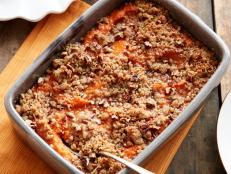How Dirty Is Your Kitchen Towel?
Is the thing you use to clean your kitchen actually clean?

webphotographeer
A new study discussed at the annual meeting of the American Society for Microbiology may put a damper on your kitchen routine. Researchers found that kitchen towels are much dirtier than we think, and can be a big culprit in spreading foodborne illness in our kitchens. Here’s a look at the study and tips on how you can keep your kitchen clean and healthy.
The Dirty Truth
Researchers from the University of Mauritius collected 100 kitchen towels and checked for bacterial growth. Forty-nine percent of the kitchen towels collected contained that bacteria, and the number increased in larger families and the presence of children. They also found that the more the kitchen towel was used for — wiping utensils, drying hands, holding hot utensils, and wiping surfaces — the more bacteria it contained compared to a paper towel. From the kitchen towels collected, 36.7% grew coliforms (E. Coli), 36.7% grew Enterococcus spp, and 14.3% grew S. aureus. Based on the stats collected, researchers determined that S. aureus was higher in families with children, while the risk of having E. Coli was higher from humid towels compared to dried ones and from multipurpose towels compared to single-use towels, and from families on a non-vegetarian diet.
Minimizing Your Risk
Kitchen towels are part of most any kitchen, but there are ways to minimize your risk of spreading germs in your kitchen. Here are a few things you can do.
Wash Hands Often (and Properly!)
E. Coli is found in the human intestinal tract and can be transferred when hands aren’t properly washed after using the restroom. That means it’s really important to wash your hands before starting to handle food, when you take a restroom break, and when switching tasks (taking out the garbage and then handling food).
Wash Kitchen Towels Regularly
Can you remember the last time you washed your kitchen towel? It should be washed at least once a week, if not more with more frequent use. Place in the washing machine with detergent and bleach (color-safe bleach if you have a colored towel) and wash in warm water.
Designate Kitchen Towels for a Specific Purpose
In order to minimize cross-contamination, use multiple kitchen towels and designate different towels for different tasks such as drying hands versus cleaning up spills.
Minimize Cross-Contamination
Researchers found that non-vegetarians had a higher amount of bacteria. This could indicate cross-contamination between animal-based foods and towels, or other locations in the kitchen. To minimize cross-contamination, use separate cutting boards for raw and ready-to-eat food and wash anything that comes into contact with the animal products including meat, poultry, fish, eggs.
Related Links:































